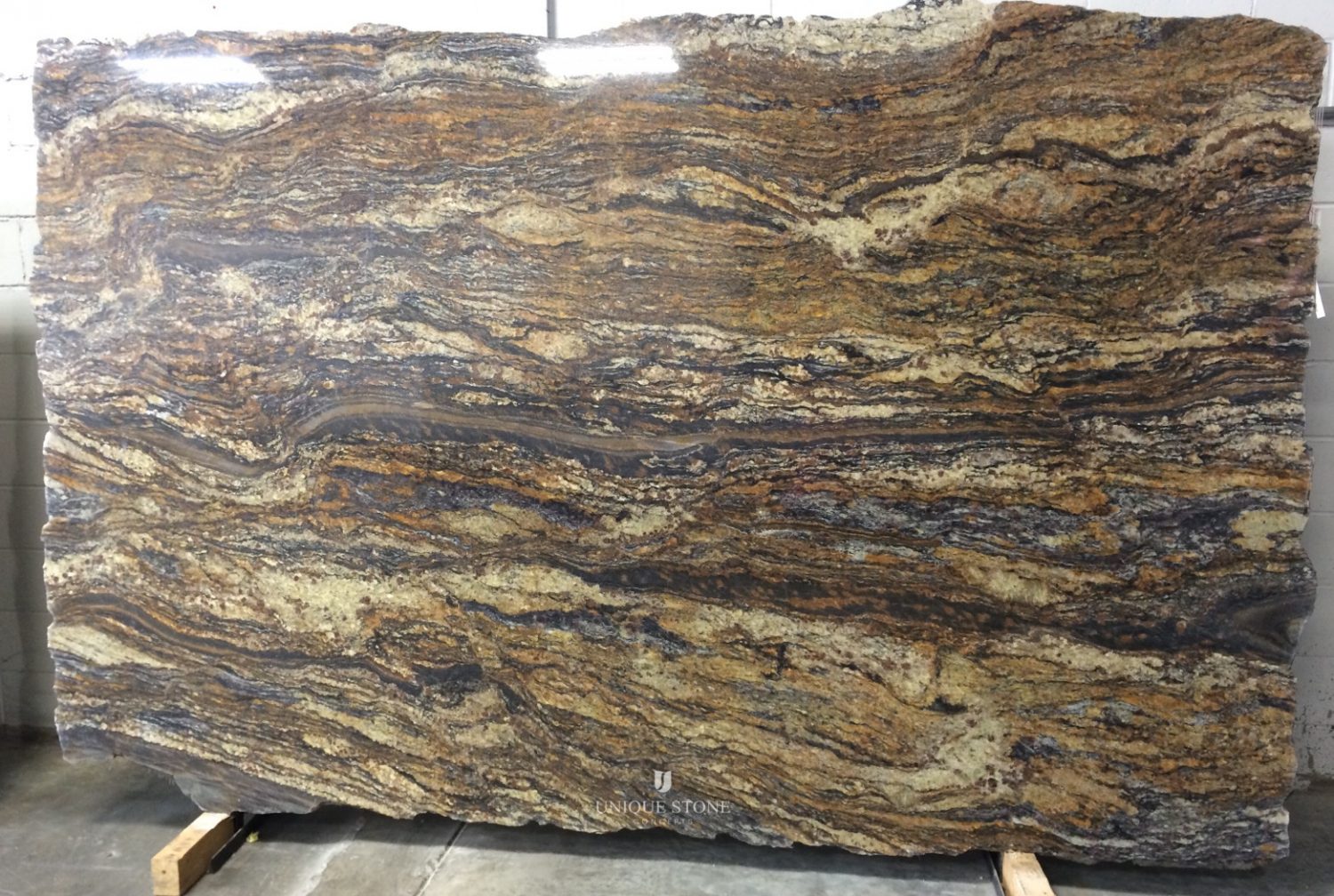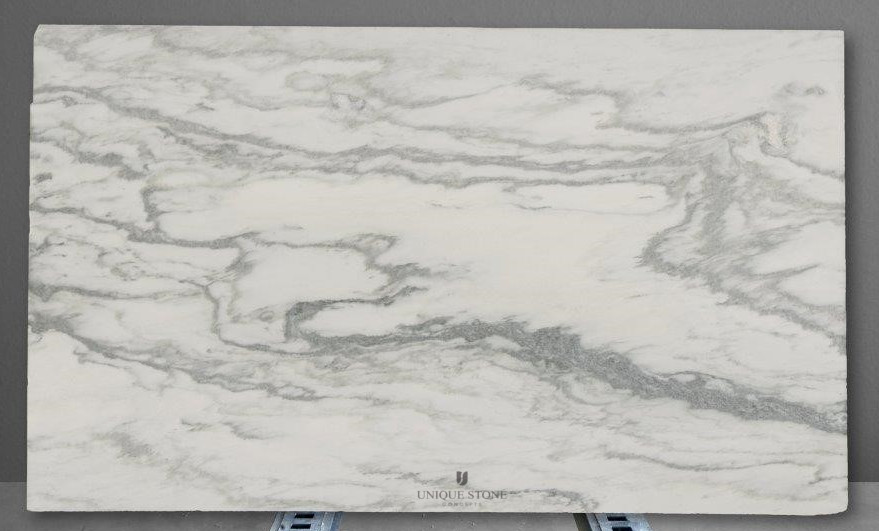Basic Information Granite Marble Quartz
Granite

Blue Fire Granite
What is Granite?
Granite is a natural stone that is extremely durable, heat resistant, easy to maintain and scratch resistant. Granite’s beauty comes from the slow crystallization of magma below earth’s service creating unique textures and veins making every piece unique. This igneous rock made up of quartz, feldspar and other minerals comes in a variety of colors, patterns and shades available, granite compliments any décor!
Can Granite be damaged?
Granite is the second strongest stone. It can withstand extremely hot pans in the kitchen to chopping up dinner with a sharp knife. It can withstand almost any element.
Does Granite Harbor Bacteria?
Granite has been approved by the CDC (Centers for Disease Control and Prevention) and there are no records of granite harboring bacteria. Compared to a butcher block and laminated materials; granite is far less likely to harbor bacteria.
How to take care of Granite
Warm soapy water will always work with granite. If needed, there are specific cleaners made for granite, marble and quartz. Do not use harsh cleaners that contain acid such as grout, tile and bathroom cleaners or bleach.
Marble

Montclair Danby Marble
What is Marble?
Marble is formed from natural sediments underneath the sea bed which become a solid stone after many years. You may have seen a marble quarry on what is certainly dry land. At some point, that land was deep beneath an ocean. Like granite each piece is carefully made by nature; making it one of a kind. Marble is typically used for bathroom vanities, tabletops, fireplaces or as a decorative stone. Marble softer and more porous so it is often not used in the kitchen due to its ability to scratch and stain more easily. Marbles cool, smooth surface makes it the material of choice for pasty and candy making.
Can Marble be damaged?
Marble is softer than granite and more porous and it scratches more easily. Because it is softer, it is more vulnerable to common household acidic products including vinegar, mustard, ketchup, lemon juice and other citrus and most other highly acidic or deeply colored products e.g. red wine. These acidic substances actually cause a chemical reaction, which removes the polish (gloss).
Does Marble Harbor Bacteria?
Because marble is porous, it can harbor bacteria. Avoid cutting on your marble countertop and use a cutting board rather than placing protein directly on your marble countertop.
How to take care of Marble
- Seal your marble countertop and re-seal it regularly. Sealing repels staining agents but doesn’t make marble stainproof. Ask Performance Stoneworks about sealant options that can be applied at installation.
- Protect. Vinegar, citrus, wine, tomato and other acidic foods / household products will etch marble; don’t let them sit on the stone.
- Clean. Avoid using acidic or abrasive cleaners. Use a cleaner that specifically states that it is safe for marble.
- Spot Treat. To remove stubborn stains, use a poultice paste made of something non-abrasive and marble-safe.
Quartz

London Grey Caesarstone® Quartz
What is Quartz?
Although quartz is found in nature, the quartz available in slabs for countertop applications is an engineered stone. It is a man made with crushed quartz bound together with adhesive, making it 90 percent quartz and 10 percent resin material. It is scratch resistant, stain resistant and has many colors — many of the patterns may even simulate marble or granite. It is ideal for kitchen and bathroom surfaces. The mix between natural and manufactured materials giving it more durable and stain-resistant features compared to granite and marble.
Can Quartz be damaged?
Although quartz is heat resistant to 150°, high heat appliances, pots and pans can burn the material, causing permanent damage to the finish so we recommend that you always use a hotpad of some type. Quartz can also be scratched so don’t use your quartz countertop as a cutting board and avoid harsh cleaning agents that may permanently damage your countertop.
Does Quartz Harbor Bacteria?
Quartz is non-porous so it does not harbor bacteria.
How to take care of Quartz
Quartz does not need to be sealed. Cleaning should be done with a soft damp cloth and, if necessary, a non-abrasive, bleach-free cleanser.
Quartzite

Madreperla Quartzite
What is Quartzite?]
Quartzite is a natural occurring metamorphic rock comprised mostly of quartz. It is formed when sandstone is compressed by extreme heat and pressure caused by tectonic plates. The colors of natural quartzite are normally white and grey with hints of brown or black. Quartzite has the look of marble with the durability of granite.
Can Quartzite be damaged?
The incredible strength of quartzite (an 8 out of 10 on the Mohs Hardness Scale) makes it one of the most durable natural stones available on the market. Quartzite is heat-resistant (so it won’t be damaged if you accidentally put a hot pan or plate on the counter) and stain- and scratch-resistant when properly sealed (so it won’t be damaged by spilled sauces and juices, or by cutting something directly on the surface). Quartzite is easy to clean and stays beautiful for many years of heavy use.
Does Quartzite Harbor Bacteria?
Quartzite is non-porous so it does not harbor bacteria.
How to take care of Quartzite
Quartzite surfaces tend to be naturally dust resistant, so wiping them with a damp cloth once in a while is enough to keep them in excellent condition. What’s more, quartzite resists chemicals and properly sealed, resists stains from spilled foods and liquids (regardless of their acidity, temperature, and pigmenting properties).
Limestone (including Travertine)

Roman Travertine
What is Limestone?
Limestone is a sedimentary rock primarily composed of calcium carbonate. It usually forms under water (on land you can be assured that at one point the area was under water. It is not uncommon to find fossils in limestone. The colors of natural limestone vary but most are in the creamy to tan to brown range. Limestone is also used in many building applications including the exterior of the Washington Monument and the Empire State Building.
Can Limestone be damaged?
Limestone, including Travertine, should be treated with the exact same care as marble. It must be properly sealed, Avoid harsh cleaners, abrasives and acids / acidic foods. Have your limestone sealed at the time of installation and re-seal it as recommended by Performance Stoneworks. Always use a cutting board as limestone scratches easily.
Does Limestone Harbor Bacteria?
Limestone is porous so it may harbor bacteria. Do not use your limestone countertops as a cutting board or place high-bacteria items e.g. proteins, directly on the countertop.
How to take care of Limestone
Limestone, including Travertine, should never be cleaned with aiding cleaners or anything abrasive. Look for a cleaner that is specifically designed for cleaning limestone that has a neutral pH or a gentle detergent and warm water solution. A soft rag or microfiber cloth works best to avoid marring limestone which scratches easily.
Onyx

Cappucino Onyx
What is Onyx?
Onyx is formed of bands of chalcedony in alternating colors usually containing bands of white or black. Its bands are parallel to one another, as opposed to the more chaotic banding that often occurs in agates. It is often used for vertical surfaces and backlit because of its translucent quality — you will often see this application in high-end restaurants as well as hotel lobbies.
Can Onyx be damaged?
Onyx is softer than granite and should be treated with care. Onyx must be sealed and should be cleaned with a soft damp cloth and mild detergent with a neutral pH. Blot (rather than wipe) any spills as quickly as possible.
Does Onyx Harbor Bacteria?
Onyx is slightly porous so it may harbor bacteria. Do not use your onyx countertops as a cutting board or place high-bacteria items e.g. proteins, directly on the countertop.
How to take care of Onyx
Onyx, should never be cleaned with aiding cleaners or anything abrasive. Look for a cleaner that is specifically designed for cleaning onyx that has a neutral pH or a gentle detergent and warm water solution. A soft rag or microfiber cloth works best to avoid marring onyx which scratches easily. Never use abrasive cleaners, glass/window cleaner or regular kitchen countertop cleaners.














